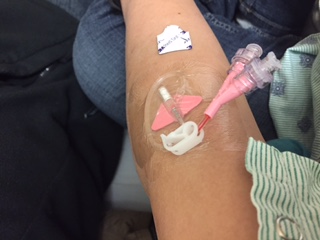
Recently, my wife experienced a frightening episode with symptoms associated with an irregular heartbeat, which could have turned out much worse. The doctor orders rest, additional tests and a daily dose of aspirin, along with lots of relaxation. The service literally and figuratively took too many hours. This is a private hospital where the staff sometimes appeared to work with the same speed of molasses.
I spoke with doctors, nurses, patients, and family members, as well as the insured and the uninsured. The complexity of the health care system, the pressure from chronic diseases, the shortfall in preventive care, the high costs and the competing demands affect emergency medicine.
US healthcare in the ER affects the quality of a system where uninsured people also show up. The situation reaches a critical moment, as Congress wants to revamp the affordable care act.
Everyone agrees they want to preserve the quality and technological advances of American medicine. But a 44-year-old woman with private health insurance who arrives in the ER suffering a possible heart attack could have been treated much faster to avoid any possibility of damages to her heart.
Those with no or with limited health insurance want to see coverage expanded, while many of those with good coverage worry that it may cost them more and disrupt a system that works. Doctors, nurses and patients describe problems involving the power of insurance companies, the impact of lawsuits, the difficulty of getting a doctor's appointment or in our case a specialist's consultation, along with the rising and sometimes catastrophic costs.
Prepare for a long stay in the ER hallway and make sure you fasten your seatbelts because it appears the system is now on life support.
Half year?
Woman, 89, trapped in hospital for six months despite being fit to leave https://www.theguardian.com/society/2017/feb/06/woman-89-trapped-hospit…
Longest wait?
The 10 'longest' hospital delays exposed http://www.bbc.com/news/health-38896155 …
$
Americans put off medical treatment because they can't pay, @gillianbwhite reports http://theatln.tc/2krM80G
Hospital operation 'long waiters' rise by 163% http://www.bbc.com/news/health-38853709